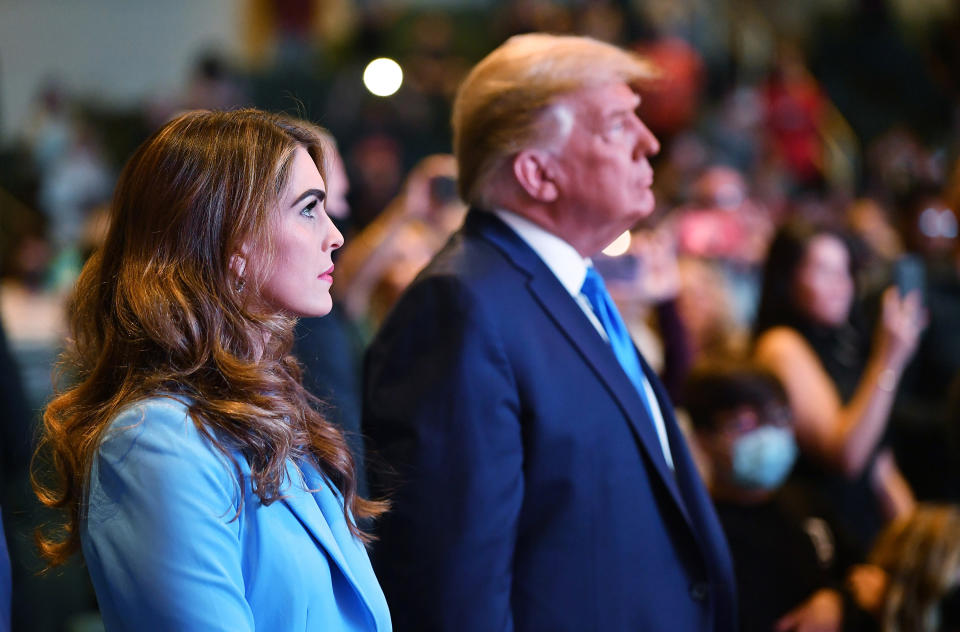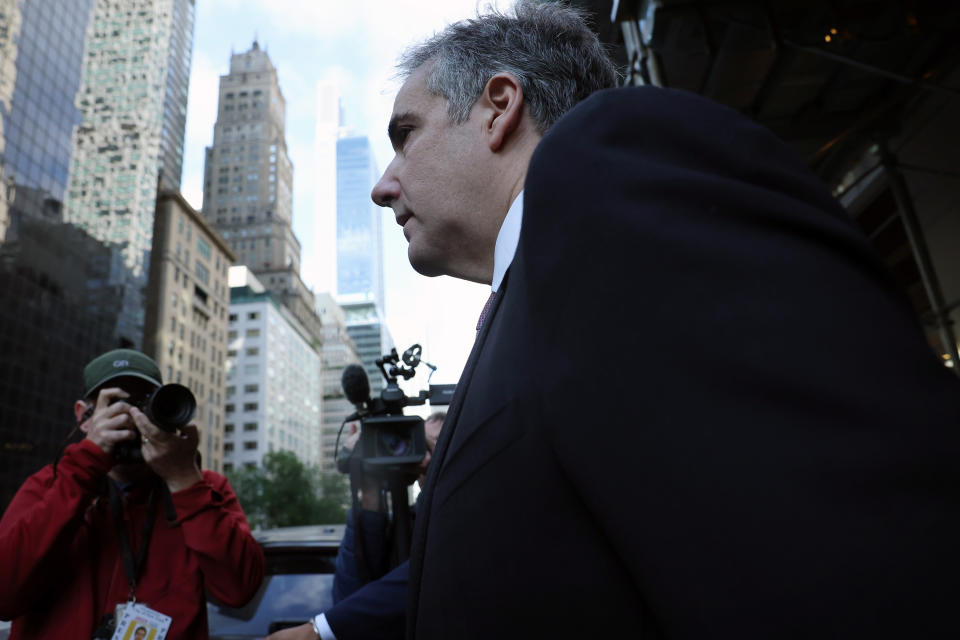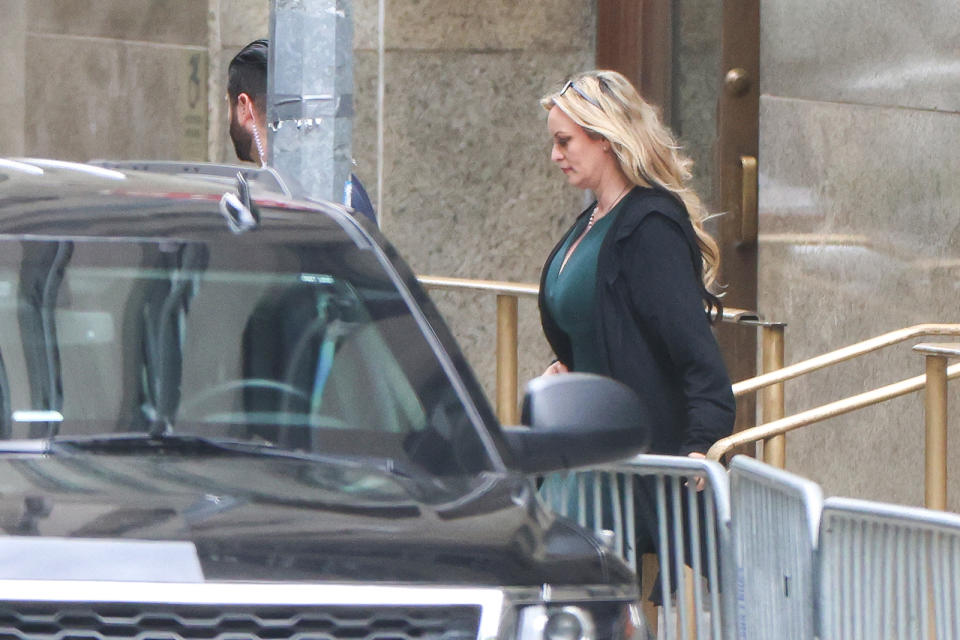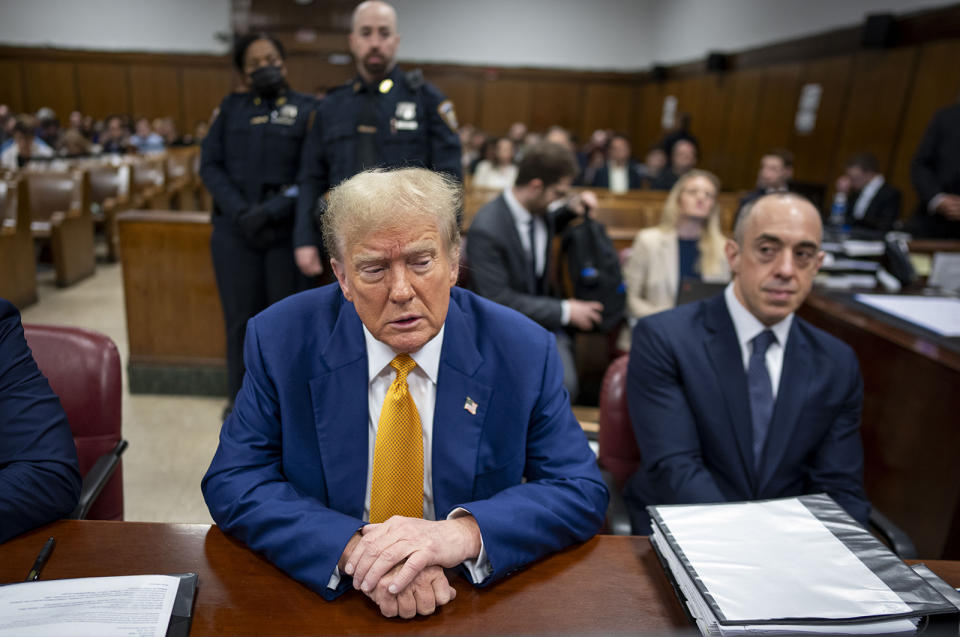The case against Donald Trump: 20 days of hush money trial testimony explained
NEW YORK — Twelve Manhattanites are expected this week to begin deliberating whether Donald Trump is a felon who conspired to disguise lewd rumors of his past to help him win over voters during his 2016 run for the White House.
The historic determination could see an American president convicted for the first time at a time when Trump, the presumptive Republican presidential nominee, is again in reach of the White House.
The Manhattan district attorney’s office presented 20 witnesses in their monthlong case against Trump, laying out an illicit “catch and kill” scheme that included falsifying business records to pay back his personal lawyer, Michael Cohen, for silencing porn star Stormy Daniels on the eve of the election.
Trump, 77, presented two witnesses, with his defense countering that there was nothing illegal about his 2017 payments to Cohen from the White House and any endeavors to silence unflattering rumors sought to protect his family and his brand.
He has pleaded not guilty and vehemently maintains that he’s the victim of a Democrat-led witch hunt.
Here are the highlights of the testimony:
David Pecker
Prosecutors first called David Pecker, the former chairman of American Media, Inc., or AMI. Across four days, the longtime publisher of the National Enquirer, who received immunity to testify, captivated jurors with details of the tabloid world’s underbelly and the August 2015 Trump Tower meeting where the hush money scheme was allegedly birthed.
Pecker told the court he agreed at the meeting attended by him, Trump and Cohen to be the campaign’s “eyes and ears” — by looking out for stories brewing that could hurt Trump’s candidacy to be bought and buried, run puff pieces about him to court voters with the assistance of then-National Enquirer editor Dylan Howard, and publish hit jobs about his opponents, like that Texas Sen. Ted Cruz’s father had connections to Lee Harvey Oswald.
AMI paid Playboy model Karen McDougal $150,000 to stay silent about her allegations of a monthslong affair with Trump not long after his marriage to Melania as part of the scheme, Pecker said. It also silenced a doorman at Trump Tower with $30,000 for his claims about Trump fathering a child out of wedlock.
The raspy-voiced media bigwig said he went back decades with Trump—during which time the pair regularly scratched each other’s backs in business—and still considered him a friend.
Keith Davidson
The lawyer who repped McDougal and Daniels in hush money negotiations described first working with AMI in summer 2016 to secure a nondisclosure deal for the Playboy model and months later being forced to deal with a frantic Cohen when AMI backed out of a plan to pay Daniels.
He said the adult film star’s allegations were of sudden importance for Trump’s side amid the disastrous release of the “Access Hollywood” tape.
The Beverly Hills attorney said he felt Cohen was stringing him along when Cohen delayed sending the money, suspecting he was trying to “kick the can down the road” until after the election.
Jurors saw Daniels’ $130,000 hush money contract anonymizing her and Trump’s names, a side letter agreement for “attorney’s eyes only” with their real names, and the transaction wired to Davidson’s firm from a shell company Cohen set up 11 days before the election. Davidson said he assumed the presidential candidate was funding the deal.
Stormy Daniels
In riveting testimony across two days, Daniels, an adult film star and director, explicitly detailed her infamous alleged tryst with Trump in a Lake Tahoe hotel room in 2006 and her fear of Trump after he announced he was running.
She said she ended up at Trump’s hotel room after receiving a dinner invitation from his longtime personal bodyguard, Keith Schiller when they met at a celebrity golf tournament, and walking out of Trump’s hotel bathroom after an hourslong conversation to find him splayed out on the bed in his boxers.
Daniels said the sex with a man “probably older than my father” was consensual but described blacking out and feeling disoriented.
“I was trying to think about anything other than what was happening there,” she said.
The Louisiana native, who Trump’s lawyers sought to paint as an extortionist driven by fame and money, said she was threatened by a stranger in 2011 to stay silent about Trump and that that encounter was front of mind when he announced his candidacy and when she agreed to sign a nondisclosure right before the election.
Michael Cohen
Trump’s longtime fixer turned foe, who was federally convicted of breaking campaign finance laws for Trump in 2018 and other crimes, was the prosecution’s star witness and their last one.
Cohen mostly corroborated others’ testimony and critically described Trump as having full knowledge of the hush money payoffs and the plan to reimburse him, which prosecutors must prove. Jurors heard him and Trump appearing to discuss the McDougal payoff in a secret recording he made in September 2016.
Cohen said he confirmed the deal with Daniels was done with Trump in an October 2016 phone call, that President-elect Trump learned of the plan to reimburse him at Trump Tower in January 2017, which he said was dictated by Trump’s convicted finance chief Allen Weisselberg, and that they discussed it again in February 2017 inside the Oval Office.
The defense sought to aggressively attack Cohen as an unreliable liar by highlighting his perjury conviction, steep profits from rebranding as a bitter Trump-hater, and motives for revenge. They elicited testimony showing he stole $30,000 from Trump’s company and uncertainty about the purpose of the phone call he claimed was about Daniels situation and whether it concerned the porn star payoff or a teenage prankster.
The bookkeepers
Testimony from the bookkeepers was accompanied by some of the most crucial evidence in the case — the checks to Cohen, his invoices, and corresponding ledger entries that make up the charges.
The Trump Organization’s loyal longtime former controller Jeffrey McConney, said his boss CFO Allen Weisselberg told him Cohen needed to be reimbursed in January 2017, identifying handwritten notes on a copy of Cohen’s hush money bank transaction as those of his boss. Trump’s side has claimed Cohen was paid for legitimate legal work, not reimbursement.
The jury saw McConney’s corresponding notes on Trump letterhead that he said were jotted down when Weisselberg chucked a notepad at him.
Weisselberg calculated Cohen was owed $420,000: the $130,000 he sent to Davidson for Daniels, $50,000 he paid a tech company to rig a poll in Trump’s favor, then doubled to “gross up” for taxes. The CFO tacked on a $60,000 bonus. McConney said Cohen received it in monthly checks after billing the company for a “retainer,” conceding he never saw a retainer agreement.
McConney said payment came from Trump’s personal bank account and partially his trust. Trump Tower bookkeepers sent the checks to Washington to be signed by the president in black Sharpie.
“Only Mr. Trump” could sign off on checks sent out of his account even after he became president, accounts payable employee Deborah Tarasoff, a 24-year vet at the Trump Org, told the court as prosecutors sought to establish Trump knew where every penny went. Tarasoff said Trump didn’t always them right away, sometimes having questions or writing “VOID.”
Called to the stand, Weisselberg’s former assistant Rebecca Manochio said he directed her to send Trump’s personal checks — like those for Cohen and unlike others sent straight to the White House — to his bodyguard Schiller’s home address in D.C. and later Trump’s top aide John McEntee.
Hope Hicks
Trump’s former White House communications director and campaign spokeswoman Hope Hicks divulged details of Trump’s knowledge of Cohen’s payoff to Daniels. She said he addressed it after it was first reported in detail in February 2018, when Cohen, still loyal to Trump, denied the boss knew anything about it.
“Mr. Trump’s opinion was it was better to be dealing with it now, and that it would have been bad to have that story come out before the election,” Hicks said.
Hicks, who made clear her loyalty to Trump was enduring, admitted she found it hard to believe Cohen made the payoff out of the kindness of his heart, as Trump told her.
“I didn’t know Michael to be an especially charitable person or selfless person.”
Hicks also testified about the Trump campaign’s panic over the release of the “Access Hollywood” tape, which prosecutors say was the motivation behind the hasty hush money payoff to Daniels.
Defense witnesses
Trump’s side called two witnesses, veteran defense attorney Bob Costello and a paralegal.
A longtime associate of Trump adviser and former Mayor Rudy Giuliani, Costello informally advised Trump’s fixer after the feds began investigating him. He claimed Cohen told him then that Trump “knew nothing” about the Daniels payoff.
On cross-examination, prosecutor Susan Hoffinger sought to establish Costello was part of a “pressure campaign” to stop Cohen from flipping on Trump, with Cohen testifying that he didn’t trust the attorney, who dangled a “backchannel” to the White House, not to relay what he told him to the boss.
“Our issue is to get Cohen on the right page without giving him the appearance that we are following instructions from Giuliani or the president,” read one email from Costello to his law partner showed to the jury during his cross-examination.
Jurors saw Trump’s tweets lauding his fixer after his places were raided by the feds in April 2018 — saying he was confident he wouldn’t flip — and then saying he wouldn’t recommend him as a lawyer after he pleaded guilty.
The defense’s main witness didn’t help his credibility when, less than 15 minutes into his testimony, the judge ejected spectators to scold him for muttering comments under his breath and staring him down.





